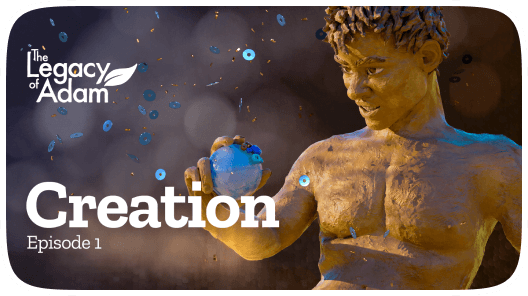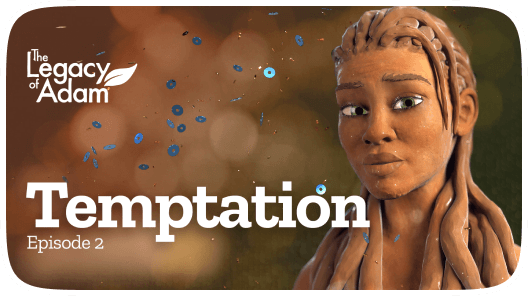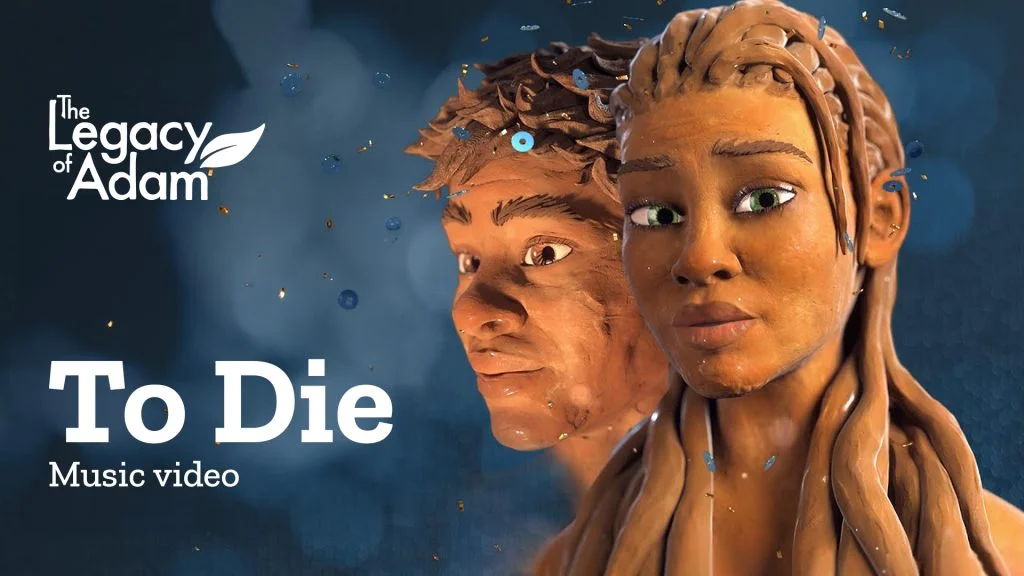Featured Videos
Ep 2: Temptation
Ep 3: The Fall
Music Video: To Die
Witness the ultimate act of love and grace that brings salvation to all who believe.
Ep 1 | Creation
A celestial light creates the world and the first humans, Adam and Eve, who begin their life’s journey in a serene, divine garden.
Bible Reference
Related Sources
Related FAQs
There are debates about the depiction of God and artistic representations of living beings in Islam. The Qur’an describes creation in “six days” which some interpret literally, while others view it as a metaphor.
The exact nature of the tree is debated. Some view it as a literal tree in a historical garden, while others see it as a symbol of moral choice and the human capacity to disobey. Either way, it represents a boundary set by God and the consequences of crossing it.
God created humans with free will, and true love and trust require the freedom to choose. The command was a way for Adam to exercise that freedom and grow in relationship with God. Without the possibility of choice, obedience would be meaningless.
No. The creation of Eve from Adam’s side is often understood symbolically to show equality and partnership—being from his side, not his head or feet. The Hebrew word for “helper” used of Eve (ezer) is the same word used for God as Israel’s helper, implying strength and dignity, not subordination.
Yes. The Qur’an describes Adam and his wife as the first humans created by Allah and placed in Paradise. Their disobedience and subsequent descent to earth are affirmed, though with some differences from the Bible, including the way blame is assigned.
No. While the Bible shows Eve eating first and giving the fruit to Adam, the Qur’an emphasizes shared responsibility. Both Adam and his wife are deceived by Shaytan and both are equally accountable for the mistake—there is no emphasis on Eve tempting Adam.
In Christian theology, being made in God’s image means humans have rationality, moral agency, and the capacity for relationship with God. Islam, on the other hand, holds that Allah is utterly unique and incomparable, so the idea of “God’s image” is not used, though humans are honored and given stewardship.
The Genesis account is not written in scientific language but theological narrative. It focuses on why the world exists, not how. Some Christians argue for harmony between Scripture and scientific evidence, suggesting that Genesis provides a cosmic framework compatible with the Big Bang and fine-tuned universe.
Whether one believes the events are literal or symbolic, the story of Adam and Eve explores themes that still shape modern life: free will, the desire to be like God, moral boundaries, shame, and responsibility. These themes lie at the heart of law, literature, ethics, and personal identity.
Yes, it’s poetic—but deliberate. The animation presents God in a way that emphasizes beauty, harmony, and presence without portraying Him in human form. Calling God a “song” reflects the idea that creation is ordered, relational, and meaningful—an idea rooted in both Scripture and philosophy.
The phrase “six days” in Genesis has been interpreted in different ways. Some believe these were literal 24-hour days, while others see them as symbolic periods or stages. The Hebrew word yom (day) can mean both a literal day and an undefined span of time. Many Christians reconcile the six days with scientific models by understanding them as a logical, ordered framework rather than a strict timeline.














